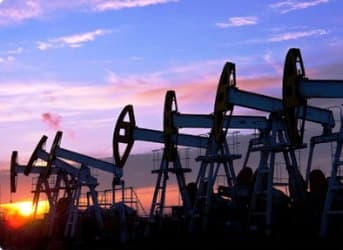There are many forces at work in our world today – climate change, the Arab Spring, population growth, and mass migrations to name a few. Some of these forces may come to impact our lives in the coming year while others may not be perceptible for decades. Our concern here is the world oil and gas supply situation which powers so much of our civilization. The decline in the affordability or availability of this resource will bring profound changes to our civilization. There are numerous “trends” or forces active in the world today that have the potential to interrupt or at least radically change perceptions about the future availability of energy supplies.
Most of the problems which could limit the world’s oil supply are well known – turmoil in the Mideast as it transitions from relative stability to a new and more volatile political order; global warming, which is slowly but steadily eating away at the habitability of our planet; and an array of economic problems ranging from too many people to dwindling reserves of natural resources. Several of these problems, however, are relatively obscure and so have not received much publicity in the national media.
Related Article: Oil Industry Cycles Offer Good Investment Opportunities
An immediate problem is the death or incapacitation of Venezuelan President Chavez. The problem for us of course is that the U.S. imports roughly a million barrels of oil per day from Venezuela. Chavez may pass quietly away and the transition to a new government may be relatively peaceful or at least without major interruptions to oil exports. Should violence break out in the wake of Chavez’s death or incapacitation, oil exports could easily dry up as they have in past. Given the dearth of spare global oil production capacity, we could easily see much higher prices and possibility even shortages as the Iranian sanctions and other Middle Eastern problems are keeping oil markets relatively tight.
During the last year there has been much discussion in the press that America is on its way to energy independence thanks to hydraulic fracturing, which has increased domestic oil and gas production markedly in the last few years. Some optimists, including official U.S. government forecasters, are saying that production of “tight oil” from fracked wells will increase from nearly nothing a few years ago to around 4 million b/d by 2020 and then remain close to this level well into the next decade.
There are, however, a number of skeptical geologists who have looked beyond the industry hype and see a much bleaker future for U.S. oil and natural gas production. Noting how fast fracked oil and gas wells run dry and the relatively small amounts of oil and gas that can be recovered from each well, they are forecasting that America’s new oil bonanza will have a very short life. Indeed some are predicting that the increases in domestic oil and natural gas production are likely to begin slowing in the coming year and will start to decline soon thereafter. This problem could be exacerbated by a recession that lowers oil prices so much that oil from fracked wells could be selling for below the costs of production — as has already taken place with natural gas. If the fracked oil boom does begin to slow in the next few years, perceptions of the future of our energy supply will have to change radically.
Related Article: Hunger Strike Puts Spotlight on Canadian Crude
The next problem that could have an impact on us all is the outcome of the political struggles in Washington in the year ahead. While the fiscal cliff problem, which was of our own making, is out of the way for a few months, debt ceilings and government budgets could turn out to be just as bad. Here the risk is of driving the economy into a deeper recession, which might lower gasoline prices for a while but over the longer run harm high cost domestic oil and gas production.
The global warming problem with its ever more dire predictions will be with us for a long time. The complexity of weather patterns makes prediction of specific drought, floods, unusual storms, or temperature extremes impossible to predict. What we can say is that the frequency of one or another of these events seems to be increasing and hardly a year goes by now without some very expensive climate aberration hitting some place or another. The costs of these unusual weather related events is already eroding away much of the world’s economy and can only get worse.
ADVERTISEMENT
By. Tom Whipple



















Life requires energy. Less affordable energy, less life.
US Peak Oil was in 1970. Since oil imports and national debt and personal debts have increased. Debt nearly collapsed the economy in Sept 2008. As gasoline prices increased from $1.03 in 1998 to $3.30 in 2008 significant numbers of families diverted mortgage payments to by gasoline need to commute to work. Foreclosures increased.
The printing of $trillions and bailouts of $billions had delayed and amplified the risks of debt.
My guess is Israel and Iran stated mutually exclusive objectives at the UN in Aug 2012 with a war date by about Aug 2013. If war results, oil price jumps will likely burst the debt bubble and the US will lose access to oil imports based on printed money and debt; a 50% reduction.
We can make adjustments. If governments embraced self-reliance, plant Victory Gardens, etc... we can cut our need for imported oil radically. America is 5% of the world's population consuming 25% of the oil. Both life and American liberty were established without dependence on oil. Time is running out.